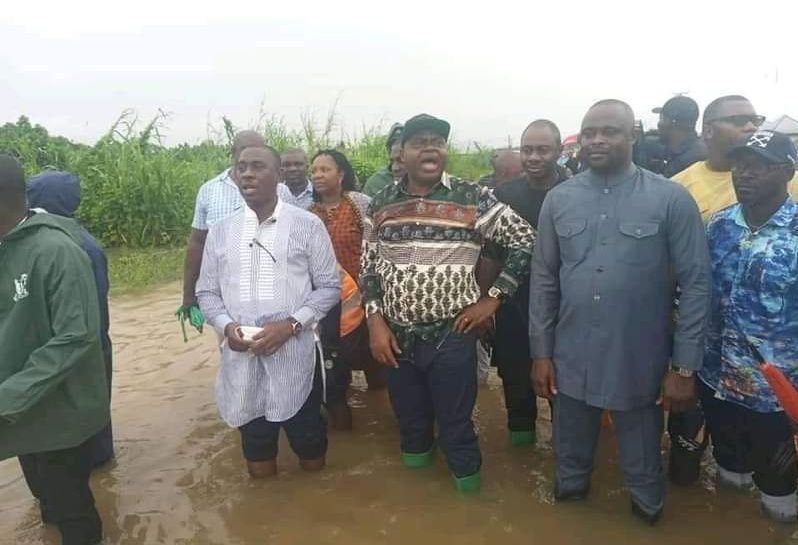There are no products in your shopping cart.
| 0 Items | £0.00 |


GOVERNOR Douye Diri of Bayelsa State has rejected the 2.5% revenue proposed for crude oil host communities across the Niger Delta in the Petroleum Industry Bill demanding at least 10% saying this is the very minimum required to mitigate the people's suffering.
Nigeria's National Assembly is currently the Petroleum Industry Bill aimed at addressing the plethora of problems afflicting the sector. One of the proposals in the bill is that local communities with oil wells, should get 2.5% of the proceeds of any sales of the crude oil once it is sold.
However, speaking yesterday at a town hall meeting with members of the National Assembly and stakeholders in Yenagoa, the Bayelsa State capital, Governor Diri described the 2.5% as grossly inadequate and unacceptable to the people of the region. He add that a minimum of 10% was required to assuage the people for bearing the harsh impacts of oil exploration and exploitation in the Niger Delta.
Governor Diri argued that if National Assembly members had seen first-hand the level of environmental degradation and its attendant effects on the people, they would not hesitate to increase the revenue from 10%. He stressed that the Petroleum Industry Bill was critical in addressing issues such as unemployment, the lack of transparency in the oil and gas sector, militarisation of oil production, skills acquisition and marginalisation of oil-producing states.
“I restate our earlier submission that the 2.5% proposed for the oil-producing communities is grossly inadequate and unacceptable to us as a people. In our proposal to you, we asked for 10% for the host communities.
“When you visit some of the sites where oil is being explored that bring multi-million dollars to this country, you will even agree with me that we should increase it further from 10%. If this bill had been passed, billions of naira used in safeguarding oil facilities would have been deployed for development purposes,” Governor Diri added.
Decrying the undue delay in the passage and implementation of the bill for about 12 years, Governor Diri urged members of the National Assembly to ensure its passage to engender peace and development in the region and the country as a whole. He expressed regrets that oil-producing communities that bear the brunt of oil production were given no consideration while multinational oil companies and the federal government were given more attention in the bill, adding that such a situation was not in the interest of the people.
Victor Nwokolo, the deputy chairman of the House Ad Hoc Committee on the Petroleum Industry Bill, said it was aimed at reforming the oil and gas industry, promising that they would work hard to ensure passage before the end of May this year. He noted that the bill would foster sustainable prosperity in host communities.
King Bubaraye Dakolo, the chairman of the Bayelsa State Traditional Rulers Council, the monarch of the Ekpetiama Clan, recommended that the bill takes into consideration environmental pollution, particularly gas flaring and ensures the inclusion of rights of host communities. Ebilade Ekerefe, a spokesman for the Ijaw Youth Council, added that the life expectancy of the Niger Delta people had significantly reduced as a result of the effects of gas flaring and yet the region contributes a great deal to the economic survival of the country.
After the meeting, the lawmakers visited an oil spill site at Ikarama community in the Yenagoa Local Government Area of the state. An environmental report by Milieudefensie and Friends of the Earth Nigeria has accused Shell Petroleum Development Company staff of causing the oil spill in Ikarama to enable them to make money from cleanups.